In continuation of the topic of how to learn the Abkhaz language, the WAC web information portal tells us where and how to learn the native language outside of Abkhazia today.
Said Bargandzhia
In a recent material, the WAC web information portal described how to learn a native language while in Abkhazia. For compatriots living outside their historical homeland, language learning is just as important. After all, for many thousands of representatives of the Abkhaz Diaspora around the world, knowledge of the language is the preservation of their roots, their introduction to national traditions, and their connection with their native land. We will try to find out how today in the world they are learning Abkhaz.
Abkhaz language in Turkey
The Ministry of Repatriation of Abkhazia pays special attention to teaching the Abkhaz language, organizing language courses for repatriates not only in Abkhazia, but also for compatriots outside the Republic.
Under this program, the Abkhaz has been studied for several years in the Turkish region of Sakarya, in villages where representatives of the Abkhaz Diaspora live compactly. Language courses operate within the framework of cooperation of the Ministry for the Repatriation of Abkhazia and the Federation of Abkhaz Cultural Centers in Turkey. For two years, they have been led by teacher and translator Elis Argun.
“I have more than 80 people learning Abkhaz from three villages near Sakarya and from Sakarya itself, - the teacher said. - They are mostly children. Classes are held once a week, and this, of course, is not enough to reach the desired result. However, the results are still there. Someone has already learned to write, read. It’s harder for them to speak, but they try very hard.”
The books with which Elis Argun works with her students were acquired in Abkhazia: these are textbooks by the authors Diana Shamba and Aldona Azhiba.
“Of course, we ourselves collect information for learning the language. The courses also tell about the history of Abkhazia: there is little such information in Turkish.”
The teacher shares that valuable information for the lessons has already been gathered on the information portal of the Congress.
“Materials in several languages, including Turkish, appear on the pages of the WAC web information portal. This is definitely a great help for us,” says Argun.
Abkhaz language courses are also held in Istanbul and Inegol; they are taught by teachers Dali Sanzaa and Aira Kapba. Courses are completely free, anyone can sign up for them.
The Abkhaz language is also taught in one of the leading universities in Turkey - the Bosphorus University. A course of language lectures for eight years has been delivered by a native of Abkhazia Gunda Ankvab. All students of this university can attend lectures for free, regardless of course or faculty.
London Abkhaz
The Abkhaz is also successfully studied in the capital of Great Britain: weekly language lessons are organized for participants of the London dernek (Abkhaz-Abaza Cultural Center - ed.). The native language is taught to compatriots by a resident of Abkhazia, Lana Basaria, who came to London to study.
In one of the interviews to the WAC web information portal, she said that she was conducting classes once a week - for two hours. The teacher understands that this time is not enough for deep study of the language, but there is no other possibility yet: she has to combine teaching Abkhaz with her own study at the university.
The age of the students of the London group of the Abkhaz is different: from 30 to 65 years. The level of knowledge of the language is also different: someone started from the very beginning, and others already can speak a little. Classes are regularly attended by about 20 people.
As one of the students of the London courses, Atakan Chkotua, notes, the Abkhaz for those living outside the language environment “is certainly difficult, but it can be studied.” He explains that in general when studying Abkhaz “there are very few textbooks available with the appropriate presentation of material, or websites”.
First online school
And yet, if desired, the Abkhaz can be learned anywhere in the world where there is high-speed Internet. Last fall, the first online school of the Abkhaz language “Alasharbaga” opened. The author of this project, a young businessman, Inal Gablia, lives in Moscow. He recalls that the idea of creating an online school appeared in March 2018.
“I publicly announced that I was engaged in this project, at a lecture by the famous linguist and polyglot Dmitry Petrov. He was the first to whom I offered to become a student of our school, and he was very interested. After this meeting, I started selecting teachers, searching for literature, designing textbooks and recruiting the first group. In addition, it was necessary to find an online platform, find an office or a studio, and resolve the Internet issue. So six months later I opened the school,” says Gablia.
Today more than 20 people from four countries of the world are studying in “Alasharbaga”: Abkhazia, Russia, Germany and Great Britain. According to Inal Gablia, the initiative has aroused a keen interest, and a “waiting list” is being formed for the recruitment of next groups. In this list are people willing to learn Abkhaz from Turkey, Holland, Syria and even Canada.
“We work according to the methodology developed by the State Committee of the Republic of Abkhazia on language policy. Classes are held on the video conferencing platform, which allows you to see and hear the teacher and students of the group in real time, to ask questions,” says Gablia.
After each lesson, students receive homework, videotaped lessons and notes from the material studied. Students also socialize in the course chat, where useful materials for lessons are uploaded. Teachers, Aza Shamba and Amina Kvitsinia, have valuable teaching experience for the Abkhaz Diaspora in Turkey.
Gablia notes that as part of a basic course of 18 lessons, students learn the alphabet, practice the pronunciation of specific sounds, master the basic rules of grammar, morphology and phonetics. The course lasts a little more than two months with classes twice a week.
“We are now launching an advanced course for those who have mastered the first level after the exam, developing our textbook for the new course. We are also going to create a mobile application,” says Inal Gablia.
Anyone can sign up for online courses. You must find the official school page on social networks (“Alasharbaga” - ed.) and contact the school administration.
Multifaceted modern approach
Capital School Center has been operating in Moscow for more than two years. It is an educational center that offers foreign language 4D technology programs. The author of the methodology, the founder of the school and its director - Irina Tsushba. She says that among the languages that can be learned in the language school is, of course, Abkhaz (since it is Irina’s mother tongue - ed.): it has been taught since the very beginning of the center.
Tsushba notes that the basis of the Abkhaz classes, like other languages, is “a unique technique that combines four ways of perceiving information: auditory, visual, tactile and muvial” (muvial learning - using an interactive screen where students interact with objects - ed.). Thus, students not only communicate with the teacher, listen to dialogues and songs, watch films, but also work with voluminous subjects, which is important from the point of view of motor memory resources when learning a language.
“Everything together guarantees a full involvement in the teaching of the Abkhaz language,” explains Tsushba.
It is possible to study Abkhaz by this method both in groups and individually. In addition, the director says, about a year ago the school began to teach Abkhaz completely free of charge. Since there were a lot of volunteers, schedules of free groups for adults and children were compiled.
“We are very proud that we were able to create conditions for learning the native language even for those who find it difficult financially to master the classes. Our Moscow Abkhaz Diaspora is the main information partner in promoting the Abkhaz language in Moscow,” says Tsushba.
The school also offers Abkhaz education for those who do not live in Moscow. For this, individual lessons are provided online - via Skype.
In general, Irina Tsushba is pleased with the results of her work.
“We have many examples of students who started Abkhaz from scratch, and during the first course in four months achieved good results. This is noted by themselves and their relatives, friends, parents, in case of children. We intend to continue to work on the development of methods of teaching the Abkhaz language,” adds Tsushba.
Despite the fact that the Abkhaz language is not simple - it is, at the same time, unique, and most importantly, native and close to Abkhaz all over the world. In the age of high technologies, with modern opportunities for learning the language, it can be learned. You just need to set yourself such a goal, persevere, choose the most suitable option for yourself - from classical methods to 4D programs, from classroom lessons to webinars or individual lessons via Skype - and start to work. Good luck!
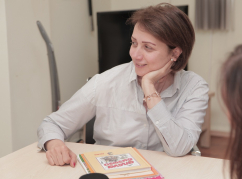
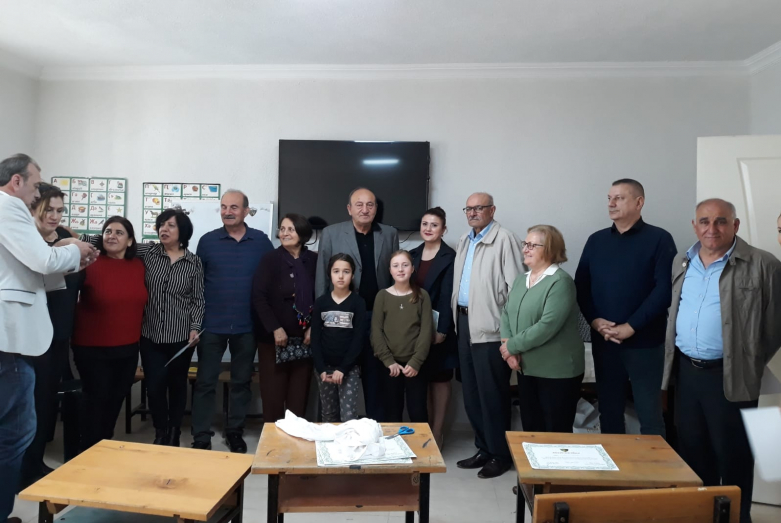
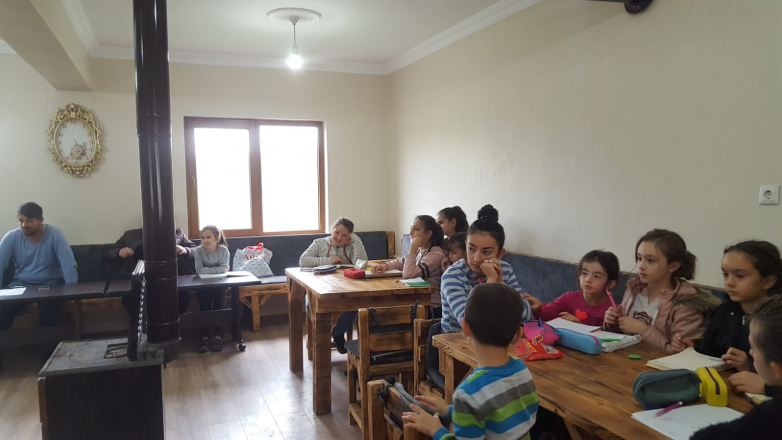
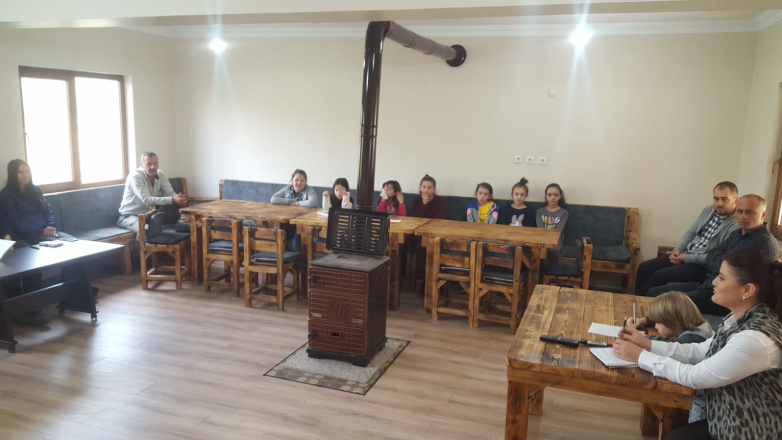
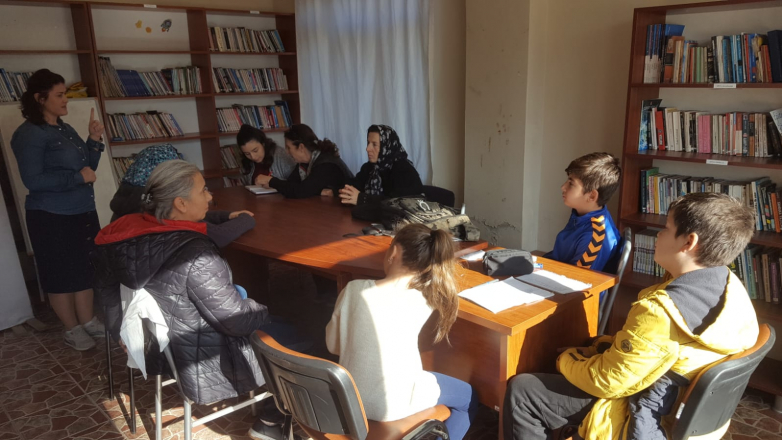
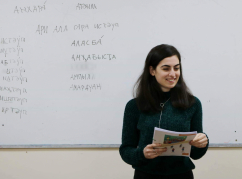

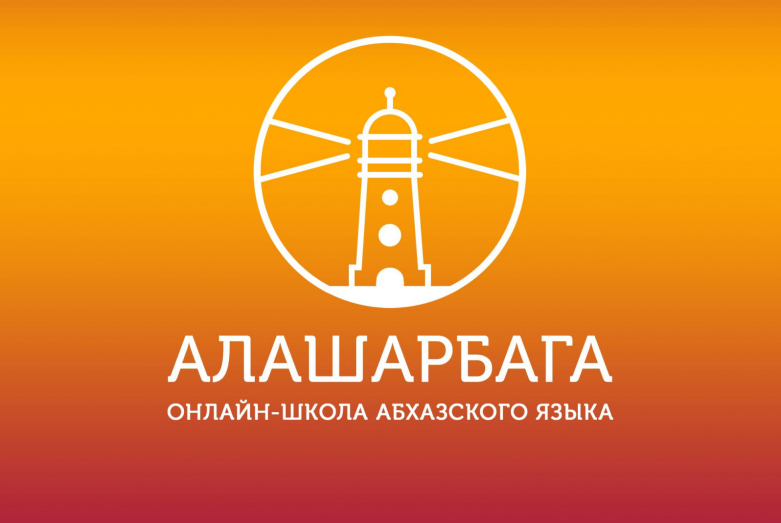



to login or register.